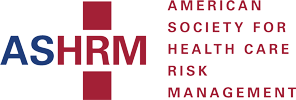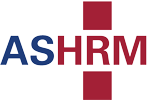The Recreational and Medical Marijuana Session was one of the most interesting sessions I attended at the ASHRM Annual Conference, Sept. 26-28, 2017 in Orlando, Florida.
Below are highlights from the session:
- Currently this involves Constitutional right vs. federal law.
- Marijuana is not approved as a medicine by the FDA.
- Marijuana is now available in edible forms such as gummies.
- There are 2 components:
- CBD which is the non-psychotic cannabinoid component or “low THC,” which does not produce a high
- THC, which is the psychoactive component
- Nationally, there are 33 million marijuana users, 40 million smokers; 4 in 10 American adults have tried marijuana; 1 in 8 American adults smoke marijuana
- It is anticipated that the decriminalization of marijuana will continue. Today many states are not prosecuting for possession of marijuana. Chronic use is comparable to not flossing your teeth.
- Marijuana businesses cannot use banks and must operate in cash only. Movement is to reclassify as Schedule II – politicians blocking. DEA declared marijuana unsafe.
- There is broad support for medical marijuana – 89 percent of Americans-nonpartisan backing.
- Currently it is classified as a Schedule I: no currently accepted medical use and a high potential for abuse; most dangerous with potentially severe psychological or physical dependence-roadblocks for research. Catch 22 is that marijuana is a Schedule 1 because there is no evidence and no evidence because it is a Schedule 1 drug. May not be prescribed by a physician – must recommend only.
- Physicians can discuss with patients: treatment options, obtain informed consent (including addiction information) and confirm that the patient has a qualified condition and recommend treatment.
- From a risk and insurance perspective, unfortunately we are stuck in limbo as this is not covered under Professional Liability (PL) insurance.
- Current research not rigorous
- Federal law versus state law
- Patients bring MMJ into inpatient settings
- Veterans struggling with PTSD and are using opiates/anti-depressants, anti-anxiety, antipsychotics, mood stabilizers and sleep aids. VA docs cannot discuss medical marijuana with patients.
- Few policies regarding medical marijuana
- Qualifying conditions vary by state
- Supreme Court ruled only states have the right to regulate medicine within their boundaries, however, providers and institutions are subject to federal laws regarding illegal substances.
- Healthcare as an industry has been hesitant to deal with marijuana, however, we are witnessing increased usage and providers must be prepared to interact with patients on this subject.
From a risk perspective, there are liability risks for physicians and institutions including growers’ use of pesticides and conflicts between state and federal laws. The best we can do is to understand the researched health benefits and remain informed as issues related to this topic will arise more frequently as time passes and laws change.







